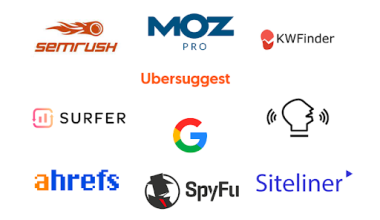Influencer marketing has become a potent tactic for companies trying to connect with their target market and spur growth in the current digital era. Businesses can reach a larger audience, increase brand recognition, and increase sales by collaborating with well-known people who have a sizable internet following. We will examine the effectiveness of influencer marketing in this blog article and offer practical advice on how to use it to expand your company.
Knowledge of Influencer Marketing
Working with people who have a significant online following and the power to shape the attitudes and behaviors of their followers is known as influencer marketing. These influencers can be found on a variety of websites, including blogs, YouTube, Instagram, and TikTok. As a result of the authority and trust they have gained from their audience, their recommendations and endorsements have a significant impact.
Developing a Robust Strategy
Creating a clear approach is essential before beginning influencer marketing. Discovering your target demographic and the influencers who appeal to them should be your first steps. Find influencers who share your brand’s beliefs, have active followers, and produce material that is pertinent to your sector.
Next, choose your campaign’s objectives. Make sure to specify your goals in detail if you want to gauge the effectiveness of your influencer connections, whether they are to raise brand awareness, increase website traffic, or increase sales. Create a campaign budget and allot resources in accordance with it.
How to Choose the Right Influencers
It’s crucial to select the appropriate influencers for your campaign. Look for influencers who have a loyal and sincere fan base. Think about the demographics of their readership, the frequency of their posts, and the general caliber of their content. Based on your unique criteria, tools like BuzzSumo, Upfluence, and NinjaOutreach can help you find potential influencers.
Think about micro-influencers as well. Although they might have fewer followers, they frequently have greater interaction rates and more specialized audiences, which can provide your company more focused exposure.
Making Engaging Content
Once you have found the right influencers, work with them to produce engaging content that fits your brand and resonates with their audience. While giving influencers the creative flexibility to showcase your product or service in an authentic way, establish clear parameters and objectives for the material they produce.
Integrity is important. Encourage influencers to be transparent with their audience about any sponsored relationships. Instead of being overtly commercial, the content should be interesting, educational, and useful to the audience.
Utilizing Various Platforms
Because influencers can be located across a variety of media, it’s crucial to diversify your strategy. Influencers in the fields of fashion and lifestyle can be found on Instagram, while short-form films can be found on TikTok and YouTube. Determine which social media sites your target demographic uses the most frequently and adjust your influencer efforts accordingly.
Evaluating Success
Establish key performance indicators (KPIs) and monitor pertinent metrics to gauge the success of your influencer marketing campaigns. Metrics like reach, engagement, website traffic, conversions, and sales might offer insightful data depending on the objectives of your campaign. Your campaigns’ effectiveness may be measured with the aid of tools like Google Analytics, social media analytics, and affiliate monitoring software.
Develop Long-Term Relationships
Building enduring relationships with influencers that are aligned with your business is the goal of influencer marketing, which is not a one-time tactic. Keep these connections strong by staying in constant contact, promoting their ideas, and looking for new chances for collaboration. You may take advantage of influencer marketing’s continuous impact by establishing these alliances.
Why Influencer Marketing Works
Trust and Authenticity:
Influencers who develop trust and authenticity with their audience grow a devoted following. They are frequently regarded as peers or friends by their supporters who see them as relatable and reliable role models. Higher engagement and conversion rates result from followers being more willing to believe an influencer’s endorsement of a good or service.
Targeted Reach:
Because influencers are experts in particular fields and industries, businesses can reach a very focused audience. Brands can connect with potential clients who are truly interested in their goods or services by working with influencers who are relevant to their target market. This focused strategy may lead to more fruitful encounters and conversions.
Quality Content Creation:
Influencers are adept content producers. They continuously create captivating and high-quality content that appeals to their audience. When organizations work with influencers, they may take advantage of their imagination and storytelling skills to market their goods or services in a genuine and compelling way. This not only draws the followers of the influencer’s attention but also improves their entire experience.
Social Proof:
Influencers’ recommendations are a type of social proof. The legitimacy and quality of the brand are enhanced when followers observe an influencer using and endorsing a product. This social proof has the power to influence consumer choices and persuade followers to try the advertised goods or services.
Enhanced Engagement:
Influencers are highly effective at promoting engagement and sparking conversations about a company. Their followers frequently engage in lively conversation and leave thoughtful comments, which fosters a sense of community. This collaboration has the potential to greatly increase brand recognition and exposure, resulting in a rise in exposure and prospective clientele.
Authentic Storytelling:
Brands may use influencer marketing to share their stories in a genuine and relatable way. Influencers are able to effectively integrate the brand’s messaging and values into their content, including them into their own personal narratives. This strategy strikes a deeper chord with their audience and forges a deeper bond between the company and prospective clients.
Marketing Channel Diversification:
Working with influencers gives firms the chance to expand their selection of marketing channels. Influencer marketing enables organizations to use the strength of social media platforms where their target audience spends a substantial amount of time rather than merely relying on conventional advertising techniques. This variety can increase the brand’s visibility and draw in new clients who may not have previously encountered it through other channels.
READ NOW: Building a Social Media Presence to Build Your Online Business
5 Best Influencer Platform to Consider
There are a number of sites that can help in connecting brands with influencers when it comes to influencer marketing. Here are five well-known social media platforms to take into account when it comes to influencer marketing:
Instagram: One of the most popular venues for influencer marketing is Instagram. It has a sizable user base, and some influencers have developed sizable fan bases there. Brands can go through trending material in their niche or use hashtags to find relevant influencers.
YouTube: Particularly for video content, YouTube is a potent medium for influencer marketing. Many YouTubers may produce interesting branded material and have large audiences. Influencers and brands can work together on sponsored videos or product reviews.
TikTok: In recent years, TikTok has grown in popularity, particularly among younger viewers. It offers a short-form video format in which influencers can demonstrate their talents. Brands and TikTok influencers can collaborate to generate interesting and viral content.
Twitter: Although Twitter is not as aesthetically focused as Instagram or YouTube, it does provide potential for influencer partnerships. Many influencers have strong Twitter networks and actively communicate with their followers. This platform can be used by brands for influencer collaborations and sponsored content.
LinkedIn: Known largely as a professional networking tool, LinkedIn has also developed as a hub for B2B influencer marketing. Influencers who specialize in specific industries or have experience in specific areas might work with brands.
Influencer marketing is effective because it takes advantage of the strengths of social proof, engagement, trust, authenticity, targeted reach, and a variety of marketing channels. The influence and impact of influencers can be efficiently tapped by brands to promote brand recognition, engagement, and ultimately conversions.






